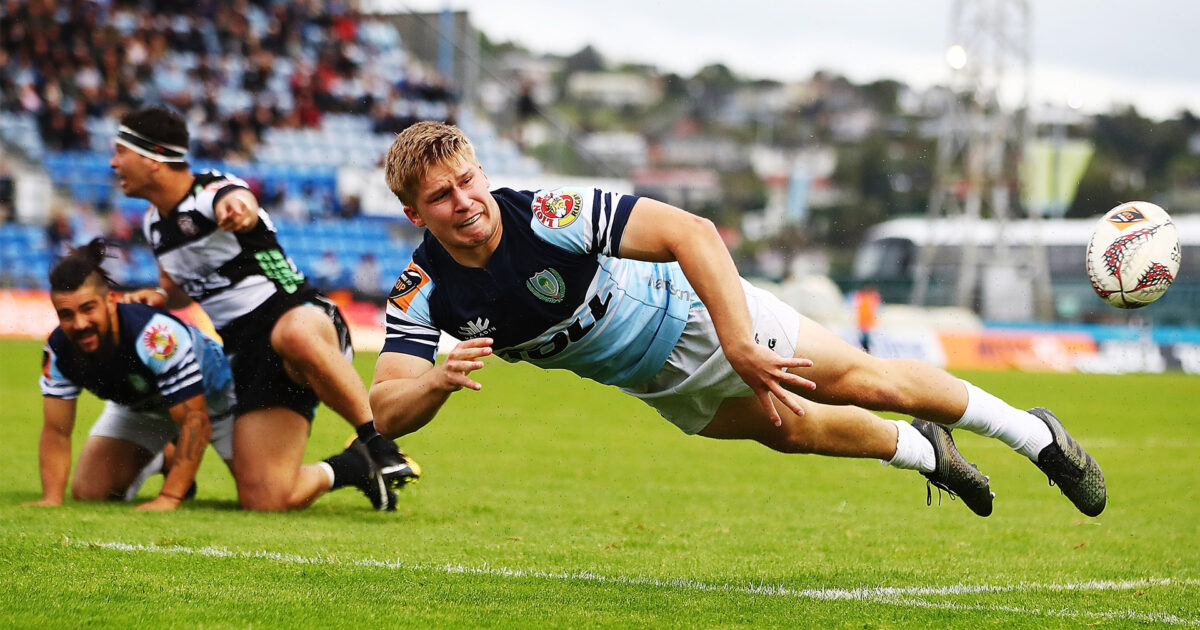Blues follow in Crusaders' footsteps, overhaul talent identification and development structures

Long gone are the days when the Blues and the relationship with their feeder unions were so frosty that the Super Rugby franchise refused to let the Auckland province share their facilities.
In somewhat of an acknowledgement that too much talent has slipped through their fingers over the years, the Blues and the Northland, North Harbour and Auckland unions are implementing a new high-performance system for talent identification and integration in the region.
One major change of the new approach will see the Blues take a more hands-on approach to talent identification, instead of leaving much of the work to the individual unions. The franchise will then work with the unions to determine the best fit for the young players coming through the systems, which could also see greater parity across Auckland, North Harbour and Northland.
The end result will likely produce a set-up not dissimilar to that of the Crusaders, who have historically been the most successful Super Rugby club – both in terms of results, and in terms of helping players progress into the All Blacks.
The likes of Braydon Ennor, Jack Goodhue (both Crusaders), Malakai Fekitoa (Highlanders) and Ben Lam (Hurricanes) have all had considerable success with their Super Rugby sides, despite hailing from the Blues region.
The Blues’ new process will extend beyond just the players, however, with up-and-coming coaches also benefitting from the change.
The catalyst for this approach was the result of an independent review commissioned by the provincial unions and the Blues, conducted by high performance consultants Eddie Kohlhase, Ken Lynch and Paul McAlpine.
“We believe this can be a game-changer for rugby in our region,” said Blues CEO Andrew Hore.
“If we improve how we work together and assist each other to be successful in a positive, transparent and respectful manner, then this partnership will prove a vital cog in the sustainability of our sport across community, high performance and organisational outcomes.”
There will be close collaboration on sharing of resources across the region to identify and develop talent, with the Blues providing oversight and support of the provincial union academies to be consistently operating as world-class development environments.
The Blues have appointed Andrew Hewetson as the new role as Head of Performance Development to lead this work and manage the coordinated approach to identifying and developing players in the region.
With Super Rugby Aotearoa due to kick-off in just over a month, the Blues have plenty to weigh up as they look to fill the void left by Beauden Barrett.https://t.co/sdPhM1eFkU
— RugbyPass (@RugbyPass) January 25, 2021
Hewetson has most recently been Sport Development Consultant at Sport New Zealand for five years and a lecturer in Sport Coaching and Skill Acquisition at Unitec Institute of Technology.
He is formerly a teacher and assistant head of department in physical education and health, with a Masters’ degree in physical education and post-graduate diploma in sports management. His research focussed on talent identification and development policies and practices in New Zealand provincial rugby.
Hewetson has a strong background in rugby with involvement from 1st XV through Academies to provincial representative programmes.
“The Blues and our provincial unions have embarked on a bold and comprehensive approach to the development and retention of rugby talent in our region,” said Blues CEO, Andrew Hore.
“We are thrilled to have attracted someone of Andrew’s extensive background, experience and skillset for what is a significant and unique role.
“Andrew not only has an extensive background in sport development and talent identification, he is well respected in rugby. “
Hore said that comprehensive planning for long term success is critical in the modern professional sporting environment.
“We believe this plan will provide the framework for a systematic, region-wide approach to understanding what it will take to attract, recruit and develop the right players in the right way in an effective development environment.
“We know it will take an extraordinary amount of hard work, goodwill and a willingness to work collaboratively. Equally we are massively excited at the opportunity and challenge ahead of us.”
– with Blues Rugby










































































